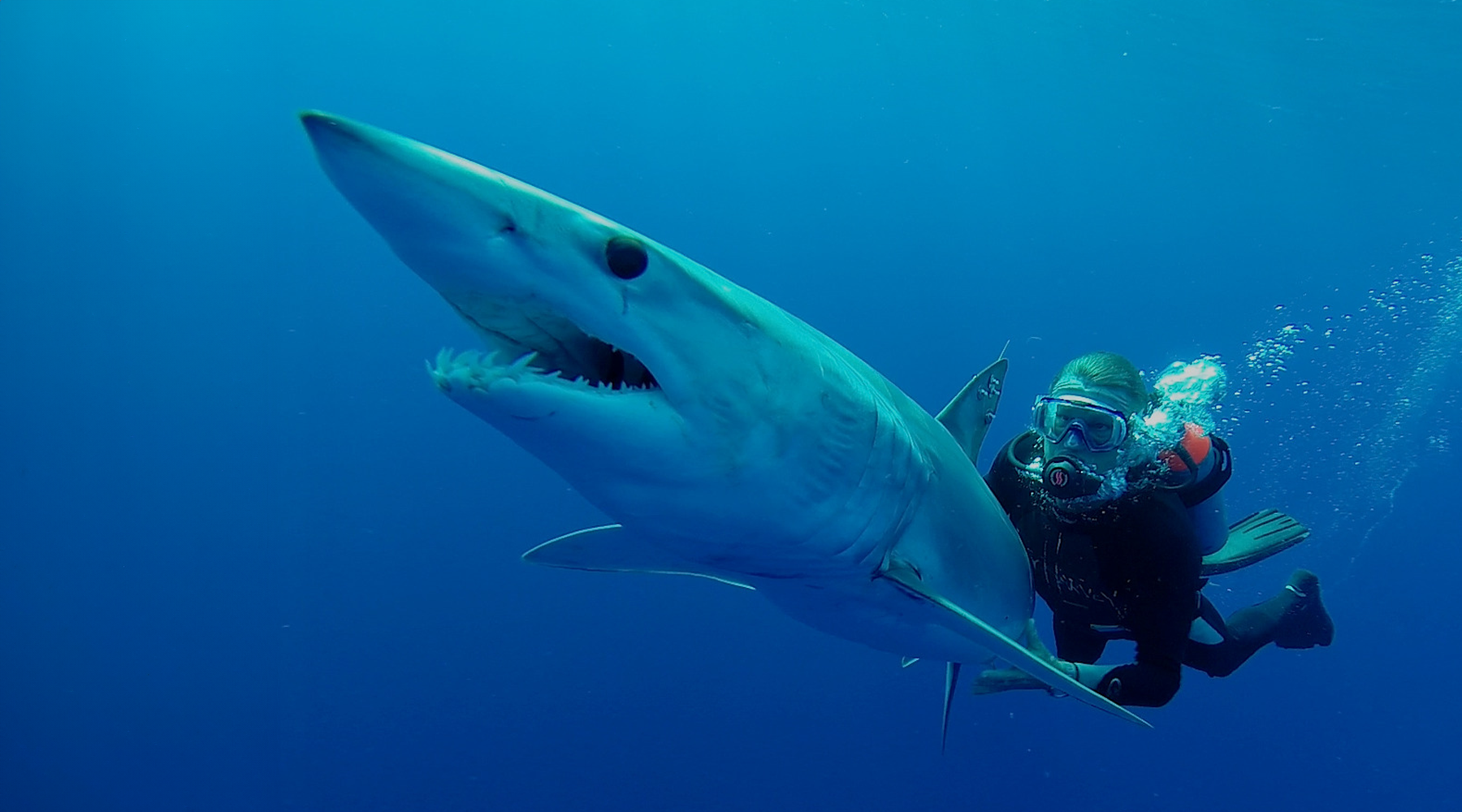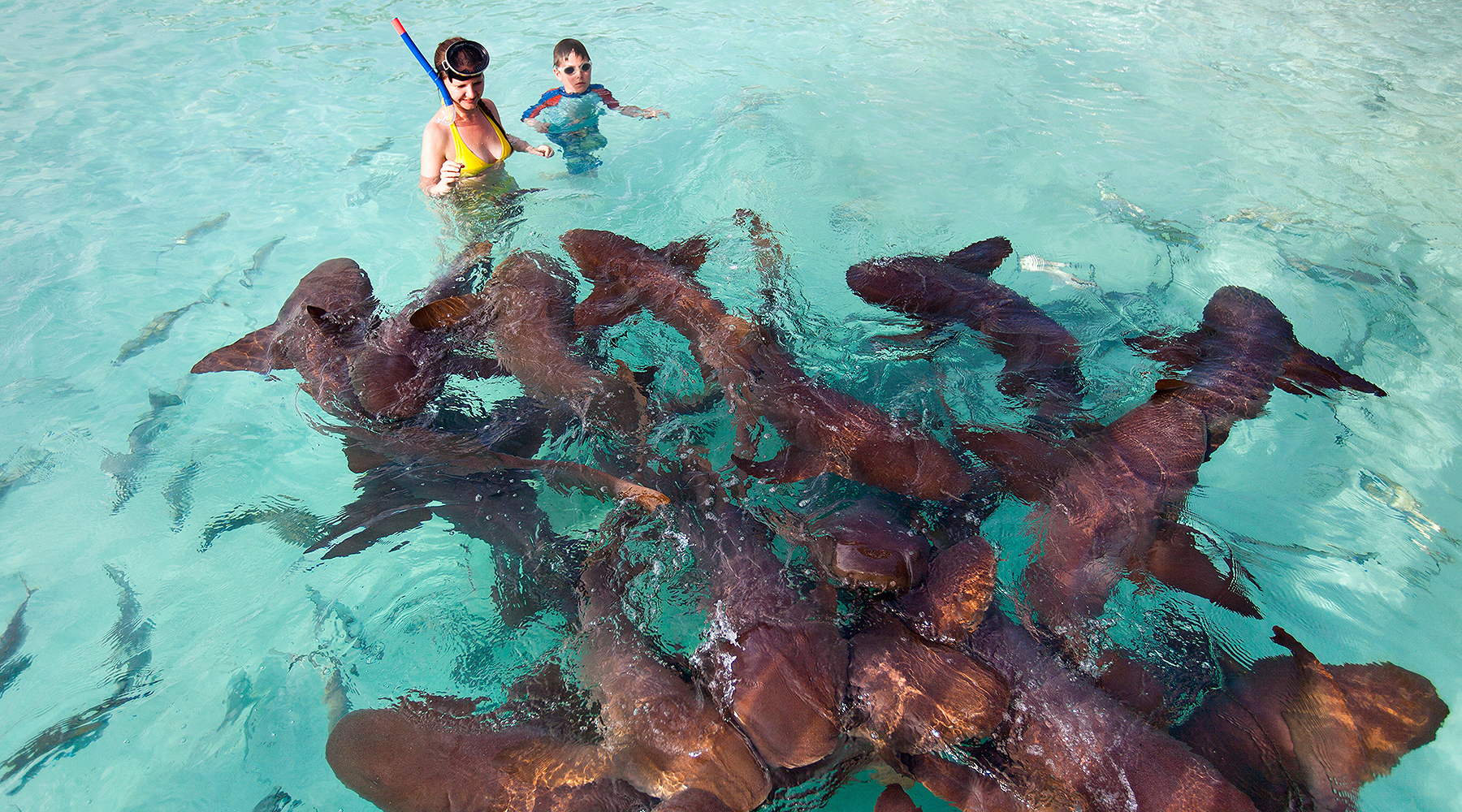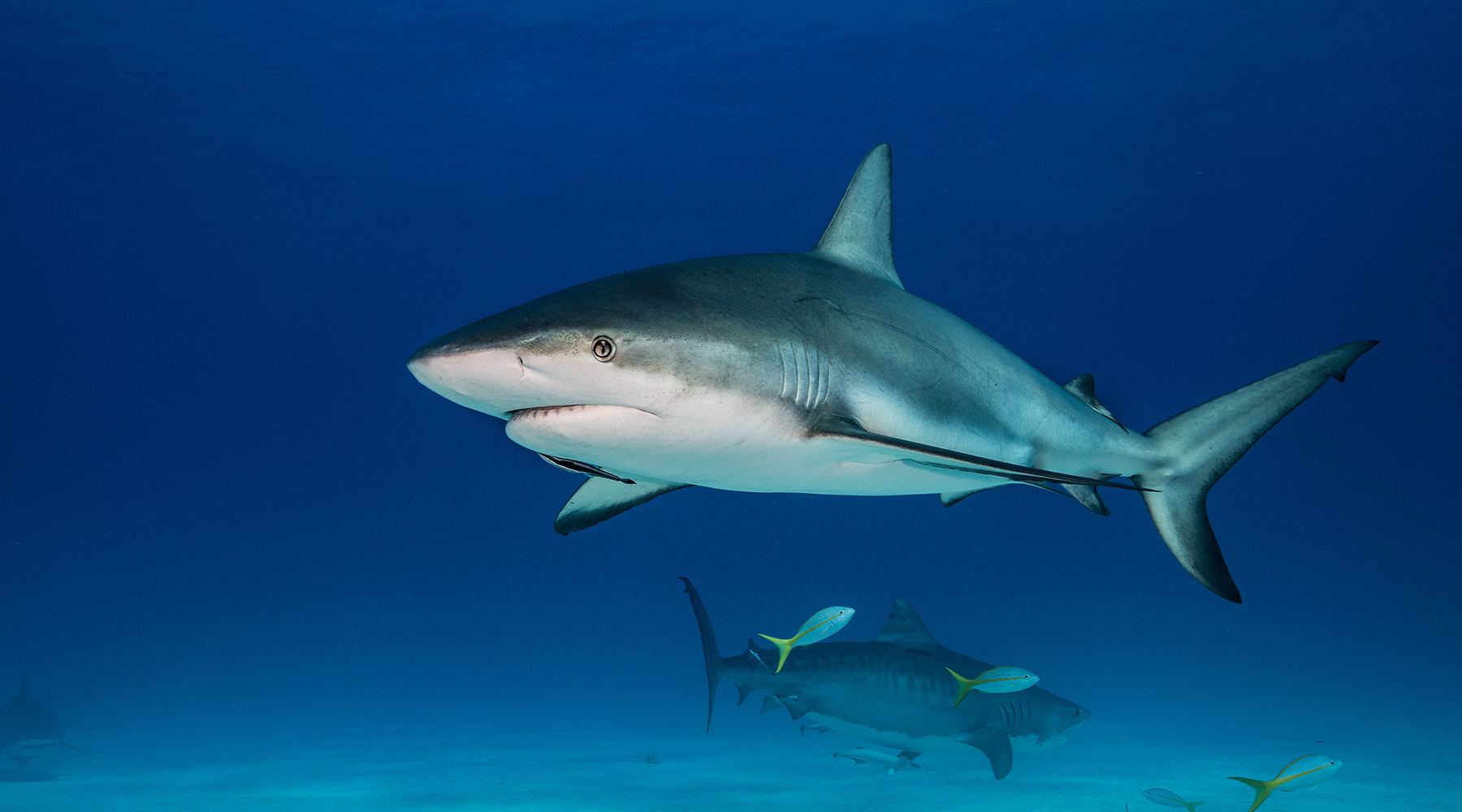
5 MIN READ
7-22-2024
Shark Finning:
The Cruel Act Explained
Mikaela Walsh, 4ocean Research Analyst
The truth about the global fin trade.
At least 73 million sharks are killed each year for their fins alone.
Shark finning is one of the most inhumane acts that is still taking place around the globe, and not enough awareness is shed light on the fin trade.
⅔ of the species in the global fin trade are threatened and face the risk of extinction.
Comparable to the ivory trade that affects rhinos and elephants, poachers would remove the tusks of these animals for the exchange of their ivory. These organisms are left defenseless, in excruciating pain, and leading some to death. The ivory trade affects up to 20,000 animals per year, potentially more, leading many of these endangered animals to face the risk of extinction. Thankfully, the ivory trade has become illegal to try to save these organisms, but the issue is an ongoing battle of the poachers continuing.

The fin trade is comparable to the ivory trade due to the circumstances behind the two. In both of these, the animal is alive and endures large amounts of pain when its body parts are dismantled. In this case, sharks cannot regrow their fins and continue to live. This means that if a shark gets captured and sliced by one of the shark finners, it will be thrown off the side of the boat and sink to the bottom of the ocean to drown.
The global fin trade has contributed to up to 70% decline in shark populations.
Shark fins are a very high commodity in some areas of the world for their fins being added to food. Despite the fins having no flavor but adding texture to the dishes, this dreadful act still persists.
The reality of shark finning is heartbreaking. Catching and killing endangered animals is a significant threat to the aquatic ecosystem. Researchers have examined the types of sharks using their DNA sequences only to find that the number of endangered sharks continually being slaughtered can have serious, irreversible effects on the ocean. The longer this act continues and continues to lead many species to possible extinction.

A significant question arises: is eating shark meat and fins safe for humans?
To make matters worse, eating sharks can have horrendous effects on the human body.
Sharks are the top predators in the ocean. This means they eat anything and everything, which is a significant reason the ocean needs sharks. Sharks eat healthy, weak, sick, and dead organisms. Without sharks, the ocean would become a sess pool of decay and bacteria.
Top predators are incredibly vital to the ecosystem for that reason, but another primary reason is that eating sharks is harmful due to bioaccumulation of contaminants in their body.
The aquatic food chain is complex, and more giant animals eat smaller animals, and so on. Smaller organisms feed off microscopic food, leading to sharks eating other sharks. However, anything the smaller fish eat, the more significant organisms consume, which multiplies in the body over time.
Once the continents inside the smaller organisms make their way up the food chain, the shark eats them, which causes a massive amount of contaminants and heavy metals to build up in the larger animals. These contaminants found in shark meat include, but are not limited to, mercury, microplastic, arsenic, lead, PCB, DDT, and more.
Heavy metals and other contaminants in these species can have lasting, extremely harmful effects on the human body. Over time, the bioaccumulation of mercury in apex predators, specifically sharks, can have ongoing effects on the human body and are extremely toxic when ingested. Mercury is a neurotoxin that can disrupt the nervous system, kidneys, liver, and immune system and enter the bloodstream.
Scientists examined the types of sharks commonly consumed through finning, and one of the most prevalent species found in dishes was the blue shark. The blue shark has been found to contain very high levels of mercury, surpassing the safe dose limit worldwide. The levels of mercury found in many sharks can lead to mercury poisoning in humans.

One crucial way to help endangered sharks caught in the fin trade is to ensure they are labeled with the correct species and geographical location. Shark finning needs to end, but this could be an effective way to regulate and avoid killing endangered animals.
The ocean is a large, complex ecosystem rich in biodiversity. Balance is maintained from a microscopic level to massive organisms.
Human actions, including construction, noise pollution, plastic pollution, overfishing, chemical runoff, and many others, have had massive impacts on the balance of the aquatic environment.
The balance of the ocean is extremely delicate since everything in the ocean is connected to one another. One major event affecting the balance in the environment is overfishing, which threatens organisms with endangerment or extinction.
Many different species in the ocean have felt the effects of overfishing. Clams, whales, bony fish, sea turtles, and sharks have all shown a decline in their populations due to human activities, and there are so many more. But apex predators are vital to all ecosystems. They are the glue that holds environments together. Top predators maintain populations of organisms and indirectly maintain the balance of most aquatic ecosystems. Sharks and killer whales are two of the ocean's most important organisms, and both have shown declining populations.
Without sharks in the ocean, there would be a massive shift and an unbalanced ecosystem. Sick and dead organisms would control the ocean, and the biodiversity in the sea would have enormous impacts.

Shark finning, which involves cutting the fins off sharks and leaving them to drown at the bottom of the ocean, is haunting. These animals endure excruciating pain and agony. Sharks create balance and structure in the vast biodiversity of the ocean. We need sharks in our ocean.
Help protect our ocean by advocating for animals that cannot defend themselves. Reduce your single-use plastic consumption. Educate yourself and others about the importance of the ocean and the impacts humans have on it. The time to take a stand is now before it is too late.

You May Also Like





